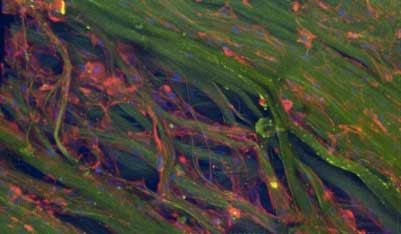Regenerative medicine company Orthocell Limited (ASX:OCC) has been granted Chinese and New Zealand patents for its novel CelGro collagen medical device platform for soft tissue regeneration applications.

The patents titled “Suture- less repair of soft tissue”are now approved in Australia, New Zealand, China and Japan, with further applications progressing in US and EU.
Managing Director, Paul Anderson, said suture-less repair of soft tissue refers to the method of repairing damaged soft tissue without the use of damaging sutures/stiches. Suture-less repair has the potential to greatly improve the efficiency and efficacy of surgical procedures by simplifying techniques, reducing surgery time and reducing the risk of additional trauma to soft tissue caused by the use or stitches.
These patents are an important addition to our global intellectual property portfolio, further strengthening our position in regenerative medicine product development and novel surgical techniques for soft tissue repair,” Mr Anderson, said:
“Suture-less or tensionless repair is of particular importance in the optimal repair of damaged nerves and is a key part of the repair process undertaken in the CelGro nerve regeneration clinical study.
“This comes at a perfect time for the company as we move our exciting pipeline products in nerve, tendon and ligament repair through the registration process in the US, EU and AUS.”
Orthocell’s patented method of suture-less repair involves the use of CelGro, a resorbable collagen medical device that, when implanted at the site of tissue injury, acts as a cell scaffold, forming a favourable micro-environment that encourages new cell growth. Cells from the regenerating tissue integrate with the collagen fibres to guide tissue regeneration.
CelGro versus direct suture method
Repair of damaged peripheral nerves often involves reconstructive surgery and the use of stitches to reconnect the nerve ends.
Orthocell’s pre-clinical studies have shown at a microscopic level that CelGro produces superior nerve repair and return of muscle function in severed peripheral nerves when compared to the traditional (direct suture) repair method.
CelGro facilitated a tensionless repair whilst maintaining alignment of nerve ends during surgical reconnection, resulting in a repair indistinguishable from normal nerve structure. CelGro also facilitated a 30% greater transmission of electrical impulses and corresponding muscle function.
By comparison, the direct suture method caused scarring and fibrosis impeding nerve growth, leading to disordered nerve alignment and inferior repair.
CelGro human nerve regeneration study
Orthocell has completed patient treatments in its CelGro nerve regeneration clinical study involving 19 patients and 36 nerve repairs. Patients in the clinical trial suffered traumatic nerve injuries following motor vehicle, sporting and/or work-related incidents, resulting in partial or total loss of use of their arms and, in more severe cases, their legs and torso as well (quadriplegia). Progress results to date have shown restoration of arm and hand function.
The company is in the process of completing analysis of clinical trial data from all patients at 12 months post treatment and is on track to provide a full report of study results in 2Q CY2021.




